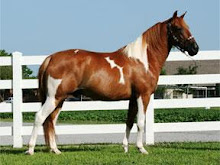Since I spent time in my last post complaining about horsemanship and how many young riders today do not read, I decided to compile a list of "essentials." You can already see that it's a long list, and they are in no particular order, though multiple books by the same author are grouped. I've
bolded my favourite titles.
Books on Training and Riding:
Training of Horse and Rider - Alois Podhajsky
School of
Horsemanship - de la Gueriniere
Horsemanship
- Waldemar Seunig
Effective
Horsemanship - Noel Jackson
Gymnasium
of the Horse - Gustav Steinbrecht
The
Cavalry Manual of Horsemanship and Horsemastership - Gordon Wright
Total
Horsemanship - Jean-Claude Racinet
Another Horsemanship
- Jean-Claude Racinet
Racinet on Baucher
- Jean-Claude Racinet
Falling for
Fallacies: Misleading Commonplace Notions of Dressage Riding - Jean-Claude
Racinet
Riding Towards the
Light - Paul Belasik
Exploring Dressage
Technique - Paul Belasik
A Search for
Collection - Paul Belasik
Twisted
Truths of Modern Dressage - Philippe Karl
Equitation (The
Art of Riding) - Wynmalen
Progressive
Dressage - Jousseaume
The Education of
Horse and Rider – Jean Froissard
Classical Horsemanship of Our Time – From Basic Training to the Highest Levels
of Dressage – Jean Froissard
The Art of
Horsemanship - Xenophon
Workbooks
from the Spanish School - Charles Harris
Fundamentals of
Riding - Charles Harris
New Method
of Horsemanship - Baucher
A Method of
Horsemanship – Baucher
The Principles of Horsemanship and Training Horses - Baucher
The Art of Riding
- McTaggart
Mount and Man -
McTaggart
A Handbook for
Horse Owners - McTaggart
Equitation
- Bussigny
Athletic
Development of the Dressage Horse - Charles de Kunffy
Give Your Horse a
Chance - D'Andrody
An Anatomy
of Riding - Schusdziarra
Tug of
War: Classical Versus Modern Dressage - Heuschmann
Training
of Hunters, Jumpers, and Hacks - Chamberlin
Riding and
Schooling Horses - Chamberlin
The Art of
Horsemanship - Holmelund
Better Riding -
Ben Lewis
American Military
Horsemanship - James Ottevaere
Horses, Saddles,
and Bridles - William Harding Carter
Centered
Riding - Sally Swift
The Principles of
Horsemanship - Doug Butler
Riding Logic – W. Museler
The
Maneige Royal - Antoine de Pluvinel
A History of
Horsemanship - Charles Chenevix-Trench
Horseman's
Progress - Littauer
In Defense of the
Forward Seat - Littauer
The Forward Seat -
Littauer
Common
Sense Horsemanship - Littauer
Apropos: Horse and
Rider - Hans Senn
The Cavalry Horse
and His Pack - Jonathan Boniface
Intro to Riding
and Stablecraft - Geoffrey Brooke
Training Young
Horses to Jump - Geoffrey Brooke
Horsemanship -
Geoffrey Brooke
Horse-Sense and
Horsemanship of To-Day - Geoffrey Brooke
Points of the
Horse - Horace Hayes
Das
DressurPferd (The Dressage Horse) - Harry Boldt
Groundwork - Buck
Brannaman
Hunting
Reminiscences - Nimrod
Prof.
Beery's Mail Course in Horsemanship - Beery
A Manual of
Horsemanship: Equitation Manual - Roy Elderkin
Thoughts on (Fox)
Hunting - Peter Beckford
War Horse -
DiMarco
The Wisdom of
Master Nuno Olivera - de Coux
Baucher and His
School - Decarpentry
Dressage
in the French Tradition - Dom Diogo de Braganca
The Seamless Seat
- Kathleen Schmitt
Cross Train Your
Horse - Jane Savoie
Dressage 101 -
Jane Savoie
Breaking
and Riding (With Military Commentary) - James Fillis
Ft. Riley
Cavalry Manual
Manual of
Equitation for the French Army
The Handbook of
Jumping Essentials - F. Lamaire de Ruffieu
Dressage
Principles Based on Biomechanics – Dr. Thomas Ritter
Reflections of Equestrian Art – Nuno Oliviera
Handbook of Riding Essentials – Francois Lemaire de Ruffieu
Handbook of Jumping Essentials – Francois Lemaire de Ruffieu
The Way to Perfect Horsemanship – Udo Burger
True Horsemanship Through Feel – Tom Dorrance
Right From the Start – Michael Schaffer
The Elements of Dressage – A Guide to Training the Young Horse – K.A Von
Ziegner
Practical Dressage Manual – Bengt Ljungquist
Practical Dressage – Jane Kidd
Advanced Dressage – Anthony Crossley
Horse Gaits, Balance, and Movement – Susan Harris
Training of the Horse and Rider – Stecken
Academic Equitation: A Training System
Based on the Methods of D’Aure, Baucher, and L’Hotte – General Decarpentry
& Nicole Bartle
Books on Physiology and Anatomy:
Equine
Back Pathology – Frances Henson
Equine Pathology – James R. Rooney, John L. Robertson
Functional Anatomy and Physiology of Domestic Animals – William O. Reece
Equine Exercise Physiology: The Science of Exercise in the Athletic Horse –
Kenneth W. Hinchcliff
Nutritional Physiology of the Horse – Andrea D. Ellis
Equine Reproduction – Angus O. McKinnon et al.
Equine Injury, Therapy, and Rehabilitation – Mary Bromiley
Animal Physiotherapy: Assessment, Treatment and Rehabilitation of Animals –
Catherane McGowan et al.
From Neuron to Brain: A Cellular and Molecular Approach to the Function of the
Nervous System – John G. Nicholls
Equine Structural Integration: Myofascial Release – James Vincent Pascucci
Diagnosis and Management of Lameness in the Horse – Michael W. Ross
The Well Adjusted Horse: Equine Chiropractic Medicine – Daniel R. Kamen
Anatomy of the Horse (Vet) – Klaus Dieter Budras
Equine Acupressure: A Working Manual – Nancy A. Zidonis
Equine Neurology – Martin Furr
And, of course, there are some great DVDs out there, as well. I recommend anything by Jane Savoie and Philippe Karl, both.
Obviously, I recommend EVERY title in that list, and there are even more that I'm sure are magnificent that I haven't read! The shame of it is, books are so expensive these days. Occasionally you can find a good buy on eBay, but I've still spent a small fortune procuring my books. If I'm being honest, I've yet to purchase or even read Elderkin's book, but I'm itching to get it. You'll notice that a lot of these books are outdated (McTaggart, for instance), but they're no less worth the read. Part of being a good horseman is understanding
why and
how modern horsmanship has come along; in fact, "modern" horsemanship may not be the ideal, you'll find ;)









